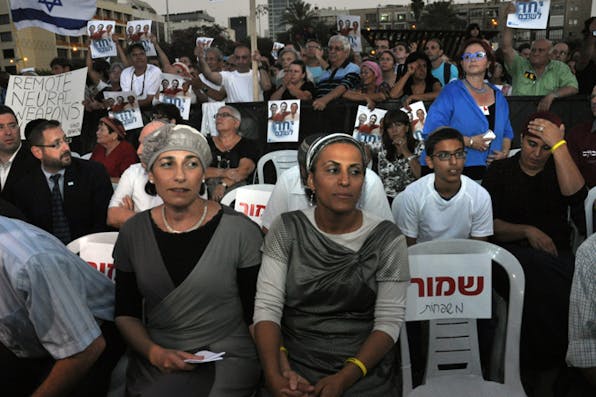
June 15, 2015
A New Israeli Consensus
Sure, its politics are chaotic. But on several of the most important issues, Israel today is less divided than it has been in a long time.
From skydiving to windsurfing, Israelis are notorious aficionados of extreme sports. As the events of 2015 have demonstrated, and not for the first time, they also take their politics the same way.
First came a bitter election campaign and predictions of the possible or indeed likely defeat of Benjamin Netanyahu and his Likud party. That was followed by the shock of the March election itself, indicating a landslide victory for Likud. But then came six weeks of acrimonious negotiation as, landslide or no landslide, Netanyahu only barely secured a coalition government with the thinnest possible majority. Since the coalition controls only 61 out of 120 seats in the Knesset, it may be only a matter of time before the government falls and the country has to start the process all over again.
Edward Grossman’s wonderful, poetic account of contemporary Israel certainly takes note of the frenetic and indeed chaotic character of its politics. According to Grossman, an ever-greater “Balkanization” has fractured Israelis into a dizzying array of special-interest groups. He specifies some of the major fault lines: between Ashkenazim and Sephardim, between religious and secular, and, perhaps most interestingly, between the iPhone generation and those who can still remember getting their foreign news from the International Herald- Tribune—a day late.



